July 31, 2025
0% Tax Isn’t a DreamLegally Pay 0% Tax with a U.S. LLC, Panama Bank & Paraguay Residency
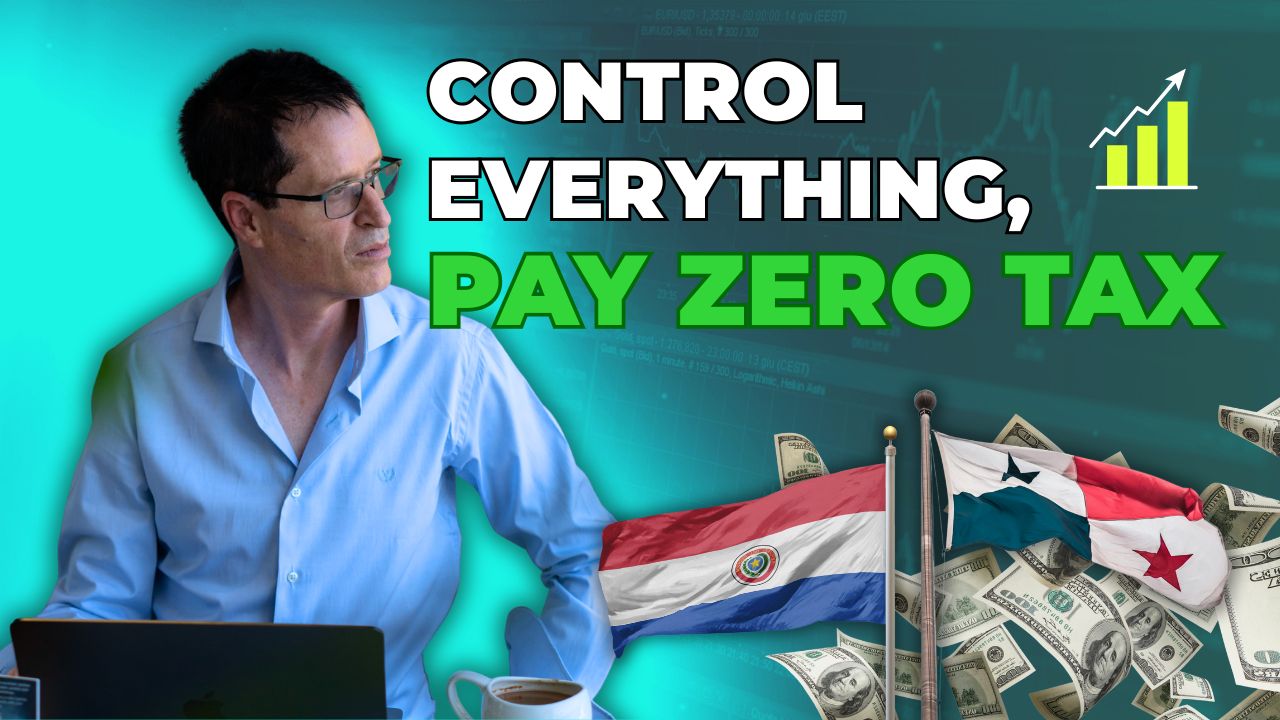
Start Here: The Secret Global Structure the Elite Use
Let’s cut the fluff. You’re here because you want to keep more of your money. Not evade taxes. Not hide it. Just set things up smartly and legally. This is the playbook: a U.S. LLC for structure, Paraguay for residency, and Panama for banking. Three tools. One strategy. Zero percent tax.
This is what I help people do every day: internationalize their lives, create second residencies, and, most importantly, reduce their tax burden. It’s not just about moving abroad. It’s about building a structure. Business formation, banking, and tax residency all working together to protect and grow your income. Especially if you’re already working remotely, you're in the best position to benefit.
Why 0% Tax Isn’t a Dream, It’s a Structure

Most people think zero tax is impossible. But here’s the truth: it’s not about loopholes, it’s about jurisdiction, structure, and presence. If you live in a country that only taxes local income, like Paraguay, then what you earn abroad simply isn’t their business. Combine that with a U.S. LLC that receives foreign-sourced income and has no U.S. physical operations, and you’ve eliminated U.S. tax liability. Now add Panama into the mix for safe, USD-based offshore banking, and suddenly you have a three-country structure that legally supports a zero percent tax rate. This isn’t evasion, it’s alignment. Your tax home is where you legally reside, your company lives where it's treated most efficiently, and your money flows through a place built for privacy. It’s all legal, it’s all documented, and yes, it works.
Component 1: U.S. LLC = Your Business Engine
.jpeg)
For digital nomads and remote workers, one of the most important steps to reduce your tax burden is switching your income from W-2 employee status to 1099 contractor. Many remote workers are still getting paid as individuals, when they should be routing income through an entity, specifically, a U.S. LLC. This shift not only allows for massive deductions, but also gives you more freedom with how you handle taxes, savings, and expenses.
The U.S. LLC is the best business structure for remote income earners, especially if you’re a Canadian, European, or non-U.S. citizen. It’s fast, cheap, and incredibly effective. You gain access to U.S. banking, credit systems, and payment tools like Stripe, all without needing to live in the U.S. And the best part? Your paycheck isn’t being siphoned by payroll taxes like Social Security or Medicare. Instead, you receive the full amount and handle your own deductions on your terms.
If you’re Canadian, it’s even easier. Canadians can completely exit their tax system and re-establish tax residency elsewhere, potentially reaching 0% taxation. Americans still have to file, but tools like the Foreign Earned Income Exclusion (FEIE) can reduce taxes by over $130,000 per year. So regardless of where you’re from, a U.S. LLC remains one of the most powerful income structures you can use.
W-2 vs. 1099: The Game-Changer You’re Missing
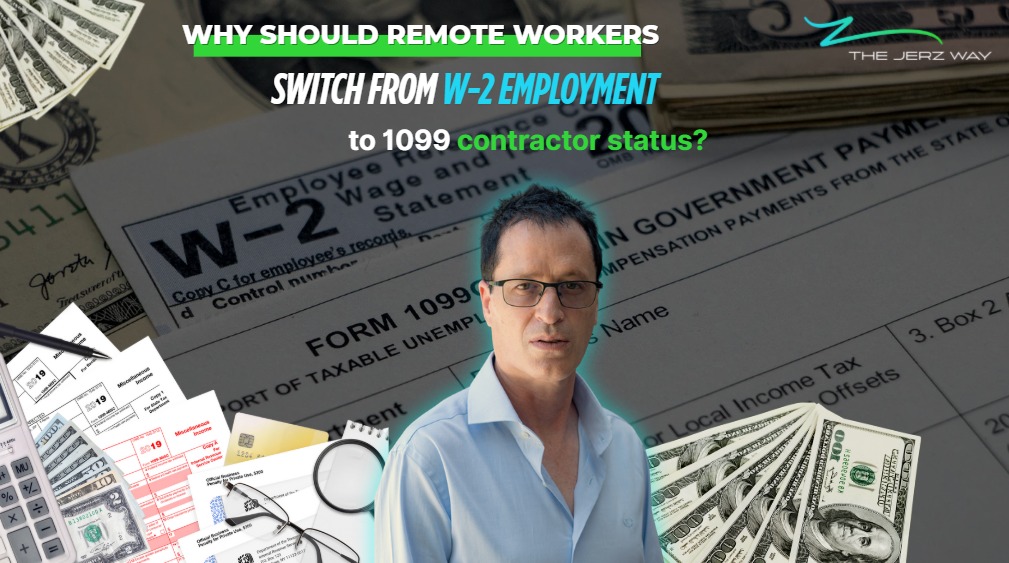
If you're still working as a full-time W-2 employee, you're likely overpaying in taxes and missing out on flexibility. With W-2 income, you're subject to automatic withholdings, Social Security, Medicare, and federal income tax, all deducted before the money even hits your account. And if you’re working remotely, especially from outside the United States, it’s one of the least efficient ways to earn.
Switching to 1099 contractor status changes everything. You get paid in full. You can route income through your U.S. LLC, unlock massive business deductions, and structure your taxes more strategically. You also gain access to tools like the FEIE, which helps reduce or eliminate U.S. tax on foreign-earned income.
As a contractor, you're not just a worker, you become a business. That gives you access to write-offs like travel, home office, software, and even legal or advisory services. Plus, if you’re not physically in the U.S., your U.S. LLC income may not even be taxed by the IRS. That’s the win.
Most employers are open to this shift. It reduces their payroll obligations and simplifies compliance.
If you’re remote, and especially if you’re international, this is the first big step toward freedom.
LLC Advantage: Build Global With U.S. Tools
You don’t need to live in the U.S. to benefit from its business infrastructure. A U.S. LLC gives you access to American banking, Stripe, PayPal, and international credibility. Foreigners can land U.S. clients with ease. Americans can use it to maximize deductions. And everyone gets the freedom to scale without borders. This is the foundation of global income structuring, and it works whether you're sitting in Lisbon, Dubai, or Medellín. If you're ready to operate globally without getting taxed like a local, this is where it starts.
Understanding the Basics of U.S. LLCs and Taxation for Canadians
A limited liability company (LLC) in the United States lets you run a business in many ways, but how you are taxed can vary widely based on where you live and how your business is structured. For Canadian residents, this distinction is critical. Canada and the United States have different rules for how they treat LLCs, and if you're not careful, you could end up paying tax in both countries.
In the U.S., an LLC is often treated as a "pass-through" entity, meaning the company itself doesn't pay taxes, its profits pass directly to the owner. But in Canada, the rules are different. Canadian authorities usually classify a U.S. LLC as a corporation, not a pass-through entity. This means any income earned through your U.S. LLC must be reported on your Canadian tax return, even if the U.S. doesn't tax it. Since Canada taxes worldwide income, you’re obligated to report and pay on it unless you properly cut ties and relocate your tax residency elsewhere.
Still, Canadians have a major advantage over Americans: they can legally exit their tax system completely. Once that’s done, your foreign income can be fully tax-free if structured right.
How Does a U.S. LLC Get Taxed in Canada?
.jpeg)
In Canada, people usually see a U.S. limited liability company as a corporation. It is not treated as a pass-through business. If you are living in Canada, you must report all the income from the LLC on your Canadian tax return every tax year. You have to include your worldwide income, not just what you earn domestically. This applies even if the U.S. does not tax the profits from your LLC.
There can be double taxation when the same income is taxed in both the U.S. and Canada. While some tax credits may apply, the rules are narrow and tricky. Speak with a cross-border tax expert before launching your LLC if you're still tax resident in Canada.
How Is a U.S. LLC Taxed in the United Kingdom?
The U.K. typically treats U.S. LLCs as foreign companies. This means that if the LLC generates income from U.K. sources or disposes of U.K. assets, the U.K. can tax those profits. Tax treaties may reduce or avoid double taxation, but they don't eliminate compliance. If you operate from or hold assets in the U.K., you need legal and tax advice tailored to your circumstances.
Key Benefits for Canadian Residents
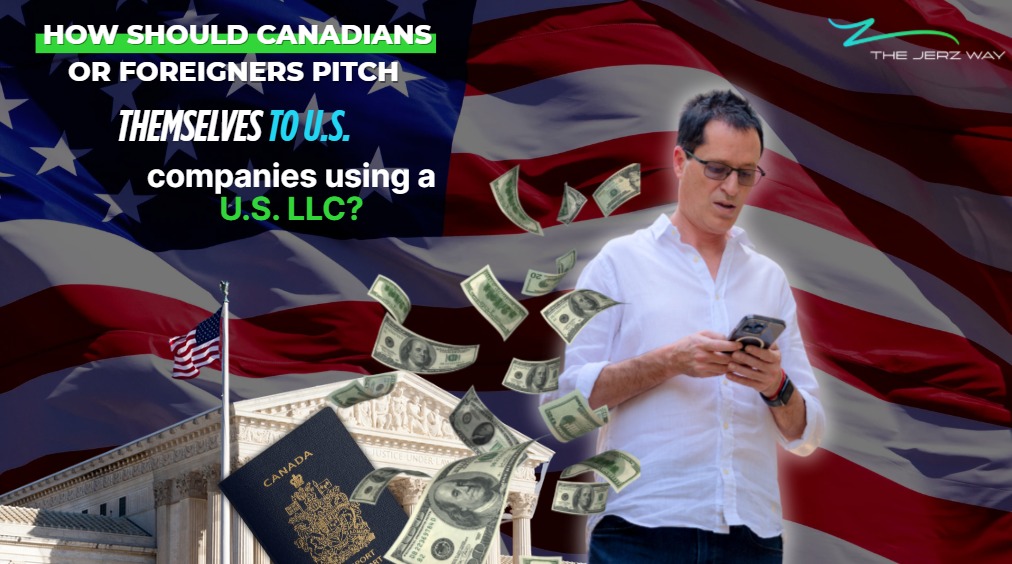
Canadians who set this up correctly can:
- Exit the tax system and become non-residents
- Avoid double taxation
- Access U.S. banking, Stripe, and credit systems
- Simplify compliance and boost income retention
For Canadians, this is even more powerful. Unlike Americans, who are taxed no matter where they live, Canadians can legally exit their tax system by cutting ties and establishing residency elsewhere. Once you’ve done that, your U.S. LLC income, when properly structured, may no longer be taxed in either country. The U.S. doesn’t tax it if it’s foreign-sourced, and Canada won’t tax you if you’re no longer a resident. That’s how people reach 0%.
Can You Pay Less Tax or Have a Lower Tax Burden If You Own or Work for a U.S. LLC but Do Not Live in the U.S.?
Yes. The Foreign Earned Income Exclusion (FEIE) allows Americans to legally exclude over $130,000 per year from their U.S. tax return if they qualify. If you meet the physical presence test or set up bona fide residency in a tax-friendly country, you can drastically reduce or eliminate your U.S. tax bill. For Canadians and other non-Americans, the path is even more straightforward, exit your home country’s tax system and operate globally through an LLC.
This isn’t tax evasion. It’s strategy, and it’s legal. The only requirement? Structure everything correctly and stay compliant with both local and U.S. filing requirements.
Component 2: Paraguay Residency = Your Legal Tax Home
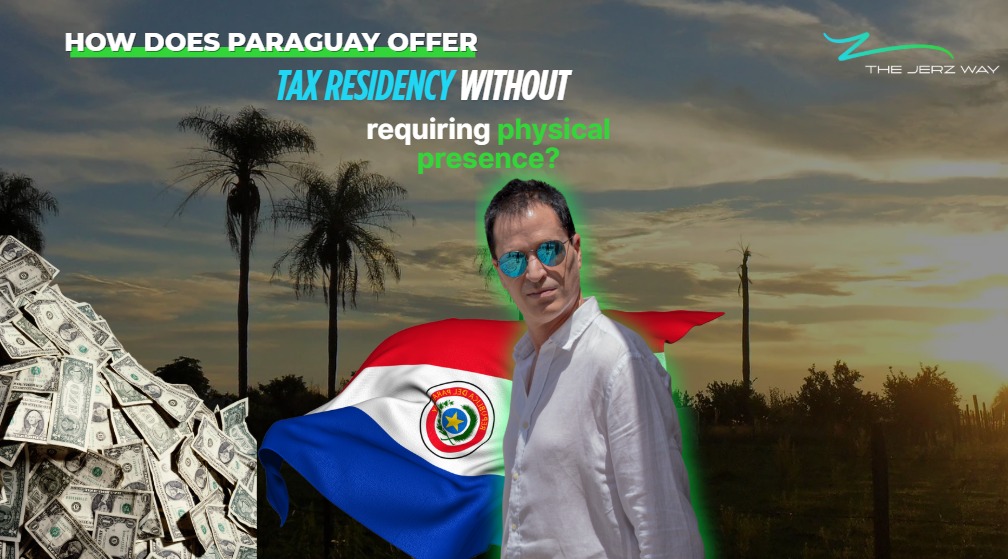
Paraguay offers a pure territorial tax system, which means it taxes only the income that is generated within its borders. Paraguay is one of the only countries offering true territorial taxation with minimal physical presence. If your LLC is abroad, and you live elsewhere, Paraguay doesn’t touch your money.If your business activities take place outside Paraguay, your income is not subject to tax. Better yet, Paraguay doesn’t require you to live there full-time. One visit is enough to establish permanent residency. Once your paperwork is complete, you become a tax resident in a jurisdiction that does not touch your foreign income.
Why Paraguay Is So Powerful
Paraguay's unmatched strength in this strategy comes from its simplicity and legal openness. One visit can secure permanent residency, and there's no requirement for ongoing presence. Unlike most countries, Paraguay will not require tax returns or filings on foreign income. This creates a rare window for people who want legitimate tax residency without relocation. It's perfect for entrepreneurs, investors, and nomads who work globally and want one stable legal base.
One trip. Legal residency. Zero tax on global income. It’s a powerful base for entrepreneurs and nomads who want freedom and compliance.
Component 3: Panama Bank = Confidential and Borderless
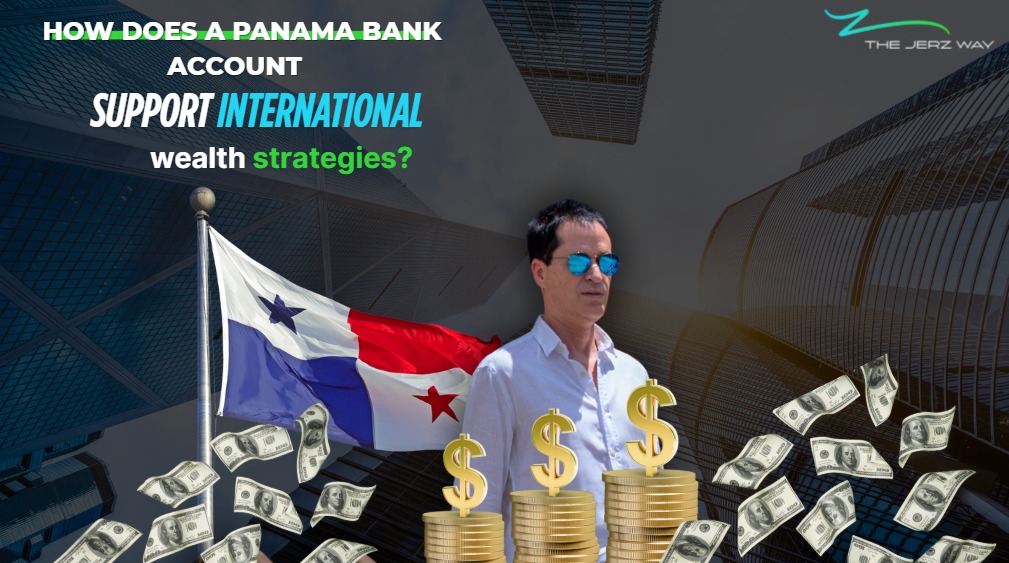
Once your business is structured and your residency is secure, the next step is banking, and Panama is the perfect hub. You get access to U.S. dollar accounts, strong financial privacy, and robust global payment systems.
Panama offers a powerful banking environment for storing and managing your offshore income. Accounts are held in USD, privacy laws are robust, and Panama does not tax funds deposited from foreign sources. By using a Panama bank account, you gain access to international payment systems and protect your money from domestic overreach. It’s a compliant yet private solution to managing globally earned profits.
Panama banks are used by international entrepreneurs for a reason: they’re built for global business. Combine this with your U.S. LLC and Paraguayan residency, and you’ve created a three-jurisdiction strategy that’s fast, legal, and highly effective.
Panama Banking 101: Why It’s Part of the Equation
If you're still working as a full-time W-2 employee, you're likely overpaying in taxes and missing out on the benefits of flexibility and control. Switching to 1099 status can completely change your financial landscape. It gives you the power to route income through a U.S. LLC, unlock business deductions, and keep more of what you earn. Most remote-friendly employers are open to it, you just have to ask. Whether you're based in the U.S. or abroad, making this shift is the first move toward true financial independence. Comment the word “call” now if you’re ready to stop bleeding money.
Why This Works (Legally)
This strategy works because each jurisdiction plays a specific role:
- The U.S. LLC gives you access to the global economy and a flexible legal structure.
- Paraguay gives you a legal residency in a country that doesn’t tax foreign income.
- Panama gives you private, dollar-based banking with global reach.
This strategy functions flawlessly because it aligns your business operations with three different legal jurisdictions, each playing a specific role. The U.S. LLC is your operational entity, giving you legitimacy and access to global payment processors. Paraguay provides your tax residency, ensuring your personal income remains untaxed as long as it’s foreign-sourced. Panama handles your financial infrastructure, enabling international banking while shielding your funds from local tax regimes. When each piece is set up correctly, the result is zero percent taxation on foreign income, and it’s all perfectly legal.
When set up correctly, you’re not avoiding taxes, you’re simply choosing the countries that reward you for your mobility. And yes, it’s 100% legal.
What You Need to Set It Up

Getting started requires a few foundational documents and steps. You’ll need:
- A valid passport
- Apostilled birth certificate
- EIN (Employer Identification Number) from the IRS
- Articles of Organization for your U.S. LLC
- Proof of address and residency for Panama banking
- Clear documentation of your business activity
Each part of this system supports the others. Your LLC receives income. Your Paraguay residency provides your legal tax home. Your Panama bank stores and moves the funds privately and securely. Done correctly, the pieces come together to form a fully compliant zero-tax lifestyle.
Avoid These Common Pitfalls

This strategy is powerful, but not foolproof. Common mistakes include:
- Opening a U.S. LLC with a physical presence or employees in the U.S.
- Spending too much time in high-tax countries
- Failing to formally exit your old tax system (especially Canadians)
- Missing IRS compliance forms like 5472 or 1120
- Not documenting your income properly
Remember: legal doesn’t mean effortless. You have to maintain clean records and file required paperwork annually. But when you do, the rewards are massive.
Does the IRS Allow This?

Absolutely. The IRS recognizes that non-resident aliens who own LLCs and earn income exclusively outside the U.S. are not subject to U.S. federal income tax—so long as that income is not “effectively connected” with a U.S. trade or business. But you are still required to file informational forms, including Form 5472 and a pro forma 1120. Compliance is part of the game, and when done right, the tax burden is zero.
The IRS isn’t the enemy here, they just want clarity. If your business is offshore and you’re not living in the U.S., you have legal protections as long as you structure and file correctly.
What Is "Effectively Connected Income"?

Effectively Connected Income (ECI) refers to earnings that are tied to active business operations inside the United States. This could include having employees, a physical office, or contracts executed on U.S. soil. However, if your business is digital and all services are delivered offshore, even to U.S.-based clients, then your income likely doesn’t count as ECI. That’s the line in the sand that protects your income from being taxed.
This is a crucial line to understand. No ECI = No U.S. tax. Cross that line with careless structuring, and you could lose your tax-free status.
Remote But Still Paying Full U.S. Tax? You’re Playing It Wrong

U.S. citizens and green card holders face a special challenge: they're taxed on worldwide income. But even then, there’s a legal tool to dramatically reduce your bill: the Foreign Earned Income Exclusion (FEIE).
If you're a U.S. citizen working remotely and still paying full federal income tax, it's time for a wake-up call. The IRS offers a powerful tool, the Foreign Earned Income Exclusion (FEIE), that lets you exclude over $130,000 in income if you qualify. The two main paths are the Physical Presence Test, where you spend less than 35 days in the U.S., or the Bona Fide Residence Test, where you establish tax residency in countries like Paraguay or Panama. Both are legal. Both are accessible. And both can dramatically reduce your tax bill. Comment “freedom” if you want the full setup.
You qualify by either:
- Physical Presence Test – Spend less than 35 days in the U.S. during any 12-month period
- Bona Fide Residence Test – Set up long-term residency in another country (like Paraguay or Panama)
It’s not just theory. With a couple of remote contracts and the right residency and business structure, you can legally avoid tens of thousands in taxes. The FEIE gives you flexibility, whether you’re outside the U.S. for the year or living long-term in a territorial-tax haven like Paraguay. And yes, even if you can’t meet one test, the other might still qualify you. These are real strategies that stack your income, not your tax liability.
Even if you can’t meet one, the other may work. The key is planning, documentation, and professional support.
Who Is This Strategy For?
This tri-jurisdictional strategy is tailor-made for modern entrepreneurs whose work and income are entirely detached from any physical location. Whether you’re a remote worker designing websites, a crypto trader moving digital assets, or an ecommerce seller fulfilling orders across borders, this setup helps you retain more of your earnings while staying fully compliant. Freelancers, consultants, agency owners, and digital nomads all benefit by turning tax burdens into strategic advantages. If your business operates online and you serve a global market, there’s no reason to stay tethered to high-tax systems.
This setup is ideal for:
- Remote workers
- Freelancers and consultants
- Crypto traders
- Ecommerce entrepreneurs
- Location-independent professionals
- Canadians, Americans, and other global citizens
If your business isn’t tied to one country, your tax strategy shouldn’t be either. The three-jurisdiction model gives you flexibility, privacy, and full legal compliance.
Real Example
Consider a digital entrepreneur based in Dubai who runs an international consulting business. He forms a Wyoming LLC to manage operations, establishes legal residency in Paraguay, and opens a USD account in Panama to handle income. With all work performed outside the U.S., no effectively connected income, and no taxable presence in either the U.S. or Paraguay, this setup results in legally paying zero percent tax on more than $200,000 per year. This isn’t a loophole—it’s lawful, documented international strategy.
For a deeper dive into the legal steps and strategic mindset behind this model
Watch the full video here. In this video breakdown, we explain how every piece fits together, from LLC formation to offshore banking and long-term residency planning.
Want to Pay 0% Tax Legally? Let’s Talk.
This isn’t theory, it’s what we do. If you’re ready to take your income, your freedom, and your strategy seriously, we’ll walk you through every step. From forming your Wyoming or Delaware LLC to setting up Paraguay residency and securing a compliant Panama bank account, we help you build it right from the start. This structure is lean, legal, and optimized for digital entrepreneurs like you.
📞 Book a free consultation
Follow Us for More Offshore Playbooks
Want to stay ahead of the curve? Follow us on your favorite platforms. We share real examples, new loopholes, banking updates, and global tax tips daily. Whether you’re just getting started or ready to refine your structure, this is the place to stay informed.
📲 Instagram: @thejerzway
📹 YouTube: The Jerz Way
📱 X (formerly Twitter): @thejerzway
💼 LinkedIn: Jerz
02
Action Plan & Document Collection
We create a tailored action plan aligned with your chosen service(s). This stage includes gathering required documents and handling essential tasks such as translations, apostilles, and genealogical research.
